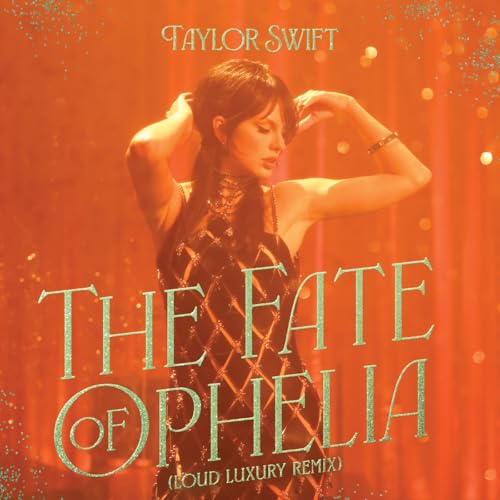Player FM - Internet Radio Done Right
1,768 subscribers
Checked 6d ago
تمت الإضافة منذ قبل five أعوام
المحتوى المقدم من BBC and BBC World Service. يتم تحميل جميع محتويات البودكاست بما في ذلك الحلقات والرسومات وأوصاف البودكاست وتقديمها مباشرة بواسطة BBC and BBC World Service أو شريك منصة البودكاست الخاص بهم. إذا كنت تعتقد أن شخصًا ما يستخدم عملك المحمي بحقوق الطبع والنشر دون إذنك، فيمكنك اتباع العملية الموضحة هنا https://ar.player.fm/legal.
Player FM - تطبيق بودكاست
انتقل إلى وضع عدم الاتصال باستخدام تطبيق Player FM !
انتقل إلى وضع عدم الاتصال باستخدام تطبيق Player FM !
المدونة الصوتية تستحق الاستماع
برعاية
B
Bridechilla - Wedding Planning Podcast

1 444- Eloping is Fun with Jenny Mac 1:06:22
1:06:22  التشغيل لاحقا
التشغيل لاحقا  التشغيل لاحقا
التشغيل لاحقا  قوائم
قوائم  إعجاب
إعجاب  احب1:06:22
احب1:06:22
Want to ditch the big wedding and elope? This episode's for you! Jenny Mac, creator of New York City-based Eloping is Fun, joins us this week to chat about the next steps after deciding to elope, as well as the creative ways couples are balancing traditions with a more intimate elopement or micro-wedding. Find Eloping is Fun on Instagram at @elopingisfun and their website elopingisfun.com Visit thebridechilla.com for all the latest news! BriteCo: Modern Insurance for Modern Milestones. Visit brite.co/bridechilla/ for a fast, free quote today and unlock peace of mind knowing you're covered. Learn more about your ad choices. Visit megaphone.fm/adchoices…
Discovery
وسم كل الحلقات كغير/(كـ)مشغلة
Manage series 2685931
المحتوى المقدم من BBC and BBC World Service. يتم تحميل جميع محتويات البودكاست بما في ذلك الحلقات والرسومات وأوصاف البودكاست وتقديمها مباشرة بواسطة BBC and BBC World Service أو شريك منصة البودكاست الخاص بهم. إذا كنت تعتقد أن شخصًا ما يستخدم عملك المحمي بحقوق الطبع والنشر دون إذنك، فيمكنك اتباع العملية الموضحة هنا https://ar.player.fm/legal.
Explorations in the world of science.
816 حلقات
وسم كل الحلقات كغير/(كـ)مشغلة
Manage series 2685931
المحتوى المقدم من BBC and BBC World Service. يتم تحميل جميع محتويات البودكاست بما في ذلك الحلقات والرسومات وأوصاف البودكاست وتقديمها مباشرة بواسطة BBC and BBC World Service أو شريك منصة البودكاست الخاص بهم. إذا كنت تعتقد أن شخصًا ما يستخدم عملك المحمي بحقوق الطبع والنشر دون إذنك، فيمكنك اتباع العملية الموضحة هنا https://ar.player.fm/legal.
Explorations in the world of science.
816 حلقات
كل الحلقات
×D
Discovery

1 The Life Scientific: Dame Pratibha Gai 26:28
26:28  التشغيل لاحقا
التشغيل لاحقا  التشغيل لاحقا
التشغيل لاحقا  قوائم
قوائم  إعجاب
إعجاب  احب26:28
احب26:28
Chemical reactions are the backbone of modern society: the energy we use, the medicines we take, our housing materials, even the foods we eat, are created by reacting different substances together. If we zoom in, it’s the atoms within these substances that rearrange themselves to give rise to new substances with the properties we need. However, chemical reactions are far from perfect. They're often inefficient and their waste products can be harmful to the environment. Getting to grips with what goes on at the scale of individual atoms has long been a sticking point. Dame Pratibha Gai has spent much of her career pioneering novel microscopes to bring this seemingly inaccessible atomic world into sharp focus. Now Emeritus Professor of Chemistry at York University, her microscope, known as the environmental transmission electron microscope, is housed in labs around the world. It allows scientists, like herself, to observe chemical reactions in real-time, in exquisite atomic detail, and tinker with them to create products that are not only better for all of us, but also the environment. Presented by Jim Al-Khalili Produced by Beth Eastwood Revised for World Service by Minnie Harrop…
D
Discovery

1 The Life Scientific: Catherine Heymans 26:29
26:29  التشغيل لاحقا
التشغيل لاحقا  التشغيل لاحقا
التشغيل لاحقا  قوائم
قوائم  إعجاب
إعجاب  احب26:29
احب26:29
Have you ever considered the lighter side of dark matter? Comedy has proved an unexpectedly succesful way to engage people with science - as today's guest knows first-hand. Astrophysicist Catherine Heymans is a Professor at the University of Edinburgh and the current Astronomer Royal for Scotland. She’s spent her career studying dark matter and dark energy: the mysterious ingredients that make up an estimated 95% of our cosmos, but which we still know surprisingly little about. Using increasingly powerful telescopes, both on earth and in space, Catherine has spent years building detailed maps of dark matter - even to the extent of capturing rare images of this mysterious cosmic component. On top of her research achievements, she's committed to making science accessible to all; not least by taking an astronomy-themed comedy show to the Edinburgh Festival and beyond. In conversation with Professor Jim Al-Khalili, Catherine talks about her passion for sharing the joys of astrophysics - and reveals how health challenges over the last few years have forced her to readdress her career, her ambitions and even her sense of self... Presented by Jim Al-Khalili Produced by Lucy Taylor Revised for World Service by Minnie Harrop…
D
Discovery

As a young man, traveling in Africa, Tim Coulson - now Professor of Zoology at the University of Oxford - became seriously ill with malaria and was told a second bout would probably kill him. Aged only 20, this brush with his own mortality led him to promise himself he would write a complete guide to science: life, the universe and everything. His aim was to understand the existence of all living things - no mean feat! Over the course of a colourful career, Tim's work has taken him all over the world: including researching wolves in Yellowstone National Park, little fish called guppies in the rivers of Trinidad and silvereye birds on Heron Island on the Great Barrier Reef. Using complicated mathematical models he builds up a picture of ecosystems seeking to explain how predators impact both evolution and ecosystems. And finally, more than thirty years after he vowed to write the book that would explain everything we know about science, he's done just that. In conversation with Professor Jim Al-Khalili, Tim talks about his journey from youthful ambition to science demystifier. Presented by Jim Al-Khalili Produced by Geraldine Fitzgerald Revised for World Service by Minnie Harrop…
D
Discovery

Have you ever pondered the fact that the universe is expanding? And not only that, it's expanding at an increasing speed - meaning everything around us is getting further and further away? If that isolating thought makes you feel slightly panicked, don't worry: this programme also contains wine! Brian Schmidt is a Distinguished Professor of Astrophysics at the Australian National University, known for his work on supernovae: massive explosions that take place when stars come to the ends of their lives. They are among the most energetic events in the universe and incredibly difficult to find; but that’s what his High-Z Supernova Search Team did, identifying enough of these rare and distant explosions to measure just how fast they were moving away from us. This led them to the realisation that, contrary to long-held belief in cosmology, the expansion of the universe was speeding up; a discovery which earned Brian a share of the 2011 Nobel Prize for Physics. As if that wasn't enough, he's gone on to discover one of the earliest stars in the universe; run a university; and become a winemaker, at his very own vineyard just outside Canberra. In a conversation spanning the genius phraseology of writer Douglas Adams, the importance of pisco sours, and the similarities between astronomy and viticulture, Brian tells Professor Jim Al-Khalili how his supernovae breakthrough paved the way for a revolution in astronomy - and where the field needs to go next... Presented by Jim Al-Khalili Produced for BBC Studios by Lucy Taylor Revised for World Service by Minnie Harrop…
D
Discovery

D
Discovery

1 The Life Scientific: Jacqueline McKinley 26:28
26:28  التشغيل لاحقا
التشغيل لاحقا  التشغيل لاحقا
التشغيل لاحقا  قوائم
قوائم  إعجاب
إعجاب  احب26:28
احب26:28
How much information can you extract from a burnt fragment of human bone? Quite a lot, it turns out - not only about the individual, but also their broader lives and communities; and these are the stories unearthed by Jacqueline McKinley, a Principal Osteoarchaeologist with Wessex Archaeology. During her career, Jackie has analysed thousands of ancient burial sites across the British Isles, bringing to life the old traditions around death via often cremated human remains. She's also assisted criminal investigators with forensic analysis, and contributed to some of the UK's best-loved archaeological TV shows. And one thing she’s absolutely clear about: far from being macabre, osteoarchaeology is more about the living, than the dead... In conversation with Professor Jim Al-Khalili, Jackie talks about the stories we can derive from skeletal remains, how western attitudes to death have gone through a major recent shift, and why she's kept some of her late father's bones. Presented by Jim Al-Khalili Produced for BBC Studios by Lucy Taylor Reversion for World Service by Minnie Harrop…
D
Discovery

1 The Life Scientific: Jonathan Shepherd 26:29
26:29  التشغيل لاحقا
التشغيل لاحقا  التشغيل لاحقا
التشغيل لاحقا  قوائم
قوائم  إعجاب
إعجاب  احب26:29
احب26:29
Surgeons often have to deal with the consequences of violent attacks - becoming all too familiar with patterns of public violence, and peaks around weekends, alcohol-infused events and occasions that bring together groups with conflicting ideals. Professor Jonathan Shepherd not only recognised the link between public violence and emergency hospital admissions, he actually did something about it. As a senior lecturer in Oral and Maxillofacial Surgery in the early 1980s, Jonathan started looking into this trend - and his research revealed that most violent assaults resulting in emergency hospital treatment are not reported to police. As a result, he devised the ‘Cardiff Model for Violence Prevention’: a programme where hospitals share data about admissions relating to violent attacks with local authorities. He also went on to study various aspects of violent assault and deliver evidence-based solutions - from alcohol restrictions in hotspots, to less breakable beer glasses in pubs. The impacts have been significant, delivering reductions in hospital admissions and in violent attacks recorded by police; not only in Cardiff, but in cities around the world where the model is used. Today, as an Emeritus Professor of Oral and Maxillofacial Surgery at Cardiff University - where he’s also Director of their Crime, Security and Intelligence Innovation Institute - Jonathan continues to bring together the medical sector with local authorities, finding practical ways to make cities and their residents safer. But his career, straddling the worlds of practise, science and policy, is an unusual one; here he talks to Professor Jim Al-Khalili about what drove him to make a difference. Presentedby Jim Al-Khalili Produced by Lucy Taylor Reversion for World Service by Minnie Harrop…
D
Discovery

Doyne Farmer is something of a rebel. Back in the seventies, when he was a student, he walked into a casino in Las Vegas, sat down at a roulette table and beat the house. To anyone watching the wheel spin and the ball clatter to its final resting place, his choice of number would’ve looked like a lucky guess. But knowing the physics of the game and armed with the world’s first wearable computer, which he’d designed, a seemingly random win was actually somewhat predictable. Doyne is an American scientist and entrepreneur who pioneered many of the fields that define the scientific agenda of our time, from chaos theory and complex systems to wearable computing. He uses big data and evermore powerful computers to apply complex systems science to the economy, to better predict our future. Much like roulette, economics can appear random but, with the right tools and understanding, it is anything but. Now Director of the Complexity Economics Programme at the Institute for New Economic Thinking at Oxford, Doyne says there’s a real need to act, to use these powers of prediction to help resolve one of the most pressing questions of our time - how best to prevent climate change. Presented by Jim Al-Khalili Produced by Beth Eastwood Reversion for World Service by Minnie Harrop…
D
Discovery

Elephants are the largest living land mammal and today our planet is home to three species: the African bush elephant, the African forest elephant, and the Asian elephant. But a hundred thousand years ago, in the chilly depths of the Ice Age, multiple species of elephant roamed the earth: from dog-sized dwarf elephants to towering woolly mammoths. These gentle giants' evolutionary story and its parallels with that of humankind has long fascinated Dr Tori Herridge, a senior lecturer in evolutionary biology at the University of Sheffield, where - as a seasoned science broadcaster - she's also responsible for their Masters course in Science Communication. Tori has spent much of her life studying fossil elephants and the sites where they were excavated; trying to establish facts behind relics that are far beyond the reach of Radio Carbon Dating. To date she's discovered dwarf mammoths on Mediterranean islands, retraced the groundbreaking Greek expedition of a female palaeontologist in the early 1900s, and even held an ancient woolly mammoth’s liver. (Verdict: stinky.) But as she tells Professor Jim Al-Khalili, this passion for fossil-hunting is not just about understanding the past: this information is what will help us protect present-day elephants and the world around them for future generations. Presented by Jim Al-Khalili Produced for BBC Studios by Lucy Taylor Reversion for World Service by Minnie Harrop…
D
Discovery

What does it take to earn the nickname, ‘The Leonardo da Vinci of heart surgery’? That's the moniker given to today's guest - a man who pioneered high-profile and often controversial procedures, but also helped drive huge medical progress; carrying out around 2,000 heart transplants and 400 dual heart-lung transplants during his 60-year career. Sir Magdi Yacoub is Emeritus Professor of Cardiothoracic Surgery at Imperial College London, and Director of Research at Harefield Hospital’s Magdi Yacoub Institute. Inspired by a surgeon father and impacted by the tragic early death of his aunt from a heart condition, his medical career includes various surgical firsts alongside numerous research projects, to further our understanding of and ability to treat heart disease. He headed up the teams that discovered it is possible to reverse heart failure, and that successfully grew part of a human heart valve from stem cells for the first time. But it hasn't always been plain sailing. At times, his work – such as early, unsuccessful transplant attempts, or using a baboon as a life-support system for a baby – attracted serious public criticism. Speaking to Professor Jim Al-Khalili, Sir Magdi reflects on the highs and lows of his cardio career, and offers his advice to the next generation of surgeons and researchers hoping to make their mark in heart medicine. Presented by Jim Al-Khalili Produced by Lucy Taylor Reversion for World Service by Minnie Harrop…
D
Discovery

Claudia de Rham has rather an unusual relationship with gravity. While she has spent her career exploring its fundamental nature, much of her free time has involved trying to defy it - from scuba diving in the Indian Ocean to piloting small aircraft over the Canadian waterfalls. Her ultimate ambition was to escape gravity’s clutches altogether and become an astronaut, a dream that was snatched away by an unlikely twist of fate. However, Claudia has no regrets - and says defying gravity for much of her life has helped her to truly understand it. As Professor of theoretical physics at Imperial College London, she now grapples with deep mathematics, where the fields of particle physics, gravity and cosmology intersect, on a quest to understand how the universe really works. She is a pioneer of the theory of massive gravity, a theory which could take us beyond even Einstein’s theory of relativity and shed light on why the universe is expanding at an ever-increasing rate. Presented by Jim Al-Khalili Produced for BBC Studios by Beth Eastwood Reversion for World Service by Minnie Harrop…
D
Discovery

When you think of Artificial Intelligence, does it inspire confidence, or concern? Although it's now generally accepted that this technology will play a major role in our future, a lot of conversations around AI and machine learning come back to the argument over us losing control and robots taking over. Happily, Neil Lawrence has a more optimistic view of the power of AI, and how we might navigate the potential pitfalls. Neil is the DeepMind Professor of Machine Learning at the University of Cambridge, and over the course of his career has been involved in deploying AI and machine learning in both academic and commercial scenarios, with a stint at Amazon as well as working across fields as varied as movie animation, Formula 1 strategy, and medical research. Speaking with Professor Jim Al-Khalili, Neil says ultimately his efforts are all about making a difference to our everyday lives - and that we need to learn how to embrace AI, albeit with a healthy dollop of scepticism; not least when it comes to how our data is used, and the power of 'the digital oligarchy'... Presented by Jim Al-Khalili Produced for BBC Studios by Lucy Taylor Reversion for World Service by Minnie Harrop…
D
Discovery

A frozen, white world at the far-reaches of the globe, where you're surrounded by snow and silence, might sound rather appealing. Factor in temperatures that drop to -57°C and a few of us might be put off - but for glaciologist Liz Morris, that's very much her happy place. Liz is an Emeritus Associate at the University of Cambridge’s Scott Polar Research Institute, and was among the first British women scientists to work on the planet’s coldest continent, Antarctica. Over the course of her career, Liz has gathered vital data on polar ice sheets and how they’re affected by climate change. She's also made numerous research trips across the Greenland Ice Shelf, and has a glacier named after her in Antarctica. In conversation with Professor Jim Al-Khalili, Liz discusses her fascination with glaciers and ice - and explains her unwavering determination to break into what was once a heavily male-dominated field. Presented by Jim Al-Khalili Produced for BBC Studios by Lucy Taylor Reversion for World Service by Minnie Harrop…
D
Discovery

Welcome to a world where medicine meets politics: a space that brings together scientific research, government wrangling, public push-back and healthcare conspiracies… Dr Anthony Fauci was the Director of America’s National Institute of Allergy and Infectious Diseases for nearly four decades, during which time he not only helped study, treat and prevent viruses such as HIV/AIDS and Covid-19; he also advised seven US Presidents, from Ronald Regan through to Joe Biden. Along the way, Tony Fauci's picked up a public profile and taken a fair amount of flack; not least because of his complicated relationship with President Donald Trump. But he's also made great strides in medical research and policy, from working with activists who initially challenged him on the government response to HIV/AIDS - to spearheading the USA's PEPFAR project to share vital medication with developing nations. In a candid conversation with Professor Jim Al-Khalili, Tony discusses his childhood in Brooklyn, the dark early days of the HIV/AIDS epidemic and lessons from the Covid-19. Presented by Jim Al-Khalili Produced for BBC Studios by Lucy Taylor Reversion for World Service by Minnie Harrop…
D
Discovery

Investigating an insect known for eating its prey alive – including, at times, its own species - the praying mantis! With bulging eyes and a triangular head, this predator uses it specially adapted front legs to trap its prey. Able to predate animals of a size much larger than themselves, including birds, lizards and even fish, presenter Adam Hart hears about their cultural significance to human populations all around the world, as well as addressing their reputation for sexual cannibalism. We also hear about their biomaterial qualities and potential importance in agriculture, and also look into a parasitic relationship the praying mantis has with a worm in South America which has given them the name ‘the mother of snakes’. Contributors: Dr. Julio Rivera, entomologist and researcher at the Université de Montréal in Canada and research associate at the Montréal Insectarium. Dr. Bianca Greyvenstein, postdoctoral fellow at North-West University in Potchefstroom and an expert in the praying mantises of South Africa. Presenter: Professor Adam Hart Producer: Jonathan Blackwell (Photo: Praying Mantis, Credit: Paul Starosta via Getty Images)…
مرحبًا بك في مشغل أف ام!
يقوم برنامج مشغل أف أم بمسح الويب للحصول على بودكاست عالية الجودة لتستمتع بها الآن. إنه أفضل تطبيق بودكاست ويعمل على أجهزة اندرويد والأيفون والويب. قم بالتسجيل لمزامنة الاشتراكات عبر الأجهزة.
























